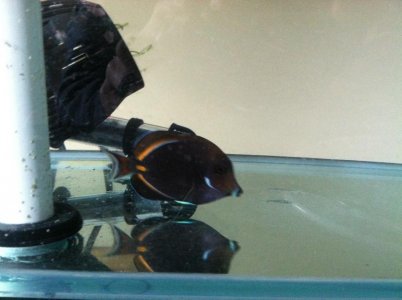Do you have a link to one of these experts?
Research or ask any of the well known expert aquarists on the circuit. Don't just go by "Forum Myths". In all practicality, it is about keeping the parasite presence latent through solid practices of quarantine, tank maintenance, and (when necessary) quick treatment. If you want to chase the myth, go ahead. I once did...Or you can skip that madness.
Bob Fenner has written loads on the subject. A quote:
"In actual fact cysts of Cryptocaryon can stay viable for a few to several months, hence ultraviolet sterilization, use of biological cleaners, allowing systems to go fallow... only decreases the number and virulence of these parasites. Once in a system, the system itself is infested and the only practical means of control becomes providing an optimized and stable environment."
I had a chance to meet him a couple of weeks ago, and I asked him more about this. We shared a laugh when I told him about my recent attempts to pull all of my fish out of the tank, wait 8-12 weeks, and go forward "ich-free". The words of wisdom rang true: it's a constant fight to keep the balance in favor of the fishes. 99.999% of aquarists who claim to be "ich-free" are really succeeding at tipping the balance in the right direction. This is a good and admirable achievement, of course. But, those who achieve this, then add an Achilles tang should not gasp in utter dismay when the ich re-appears after an environmental change.
Please note...I have nothing to win or lose here. I've been around the block with many strategies and tactics for years on this. Just trying to share what the experts already know to be true.
If you go for very sensitive fish, such as the Achilles Tang, you are in for a tough balancing act. You have to REALLY tip the balance toward the fishes, or you will deal with ich. On the other hand, if you stick to hardier fish, such as clowns, you can get away with an easier balance. It is possible to have an "ich outbreak free" tank.



